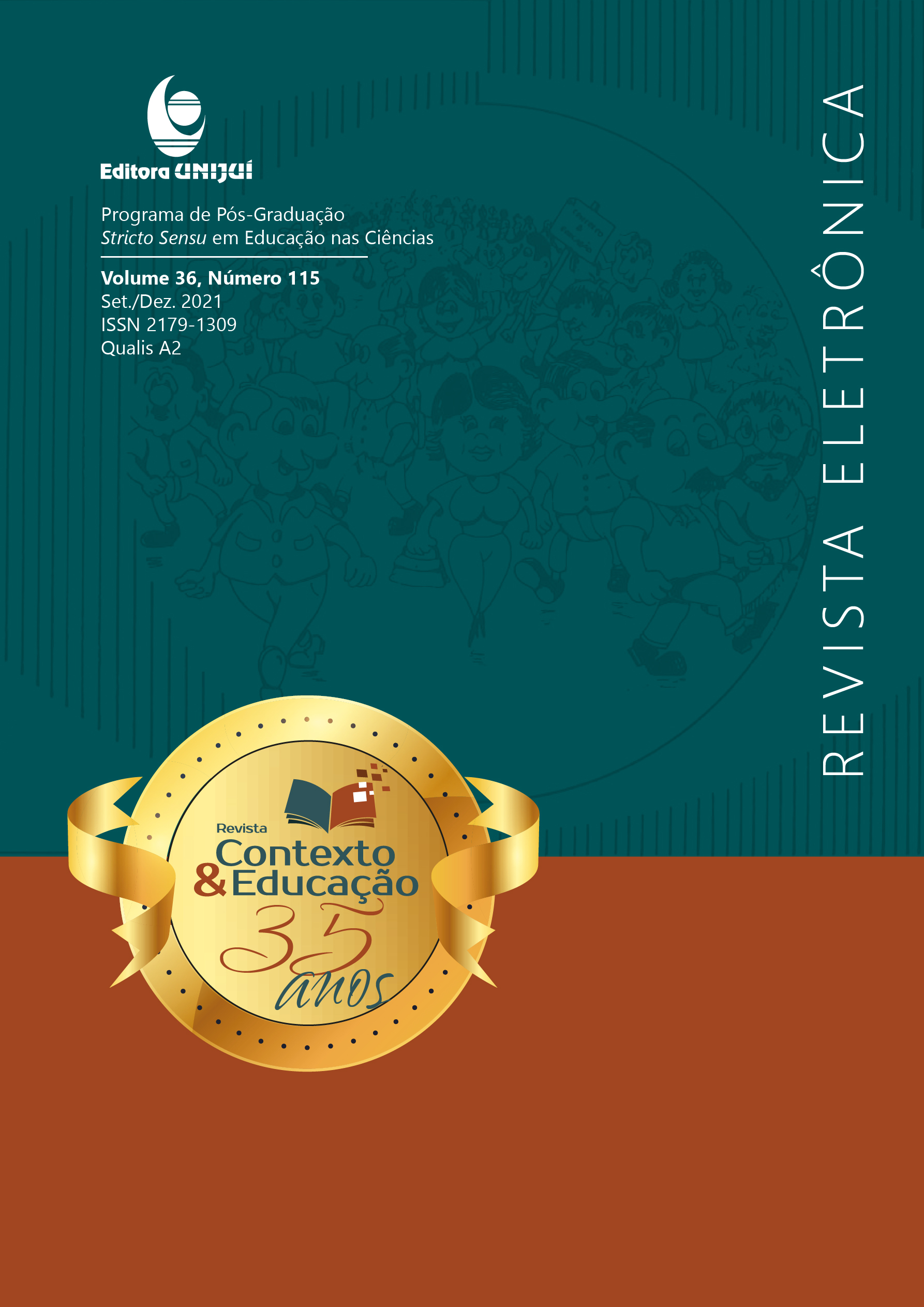UNDERGRADUATE STUDENTS’ COMPREHENSIONS OF OVERCOMING LEARNING DIFFICULTIES IN ELEMENTARY SCHOOL
UNDERGRADUATE STUDENTS’ COMPREHENSIONS OF OVERCOMING LEARNING DIFFICULTIES IN ELEMENTARY SCHOOL
DOI:
https://doi.org/10.21527/2179-1309.2021.115.10951Keywords:
Initial training. Theory of Subjectivity. Overcoming learning difficulties.Abstract
The way in which undergraduate students understand learning difficulties and overcoming them can contribute to the construction of alternatives to content teaching and medicalization of the problem. This article reports a research on the own practice of three teacher educators, in a class of 22 undergraduates, on the topic Understanding and Explanation of Development and Learning Processes II. Overcoming learning difficulties was one of the subjects studied, from the perspective of the theory of subjectivity. We analyze written productions of the undergraduate students at different moments of a didactic sequence, when answering study questions, analyzing a film and reporting observations of the internship. We evaluate the undergraduate students' understanding of the ideas in the texts and the relationships they produced between these concepts and practical situations. The results indicate that the didactic sequence favored the understanding of the ideas and the articulation between theory and practice. However, we consider that the undergraduate students' implicit theories make it difficult to learn the concepts of the theory of subjectivity. These results suggest possibilities of changes in the didactic strategies of teacher educators and the accomplishment of other researches according to the framework of subjectivity theory and qualitative epistemology.
Downloads
Published
How to Cite
Issue
Section
License
By publishing in Revista Contexto & Educação, authors agree to the following terms:
All works are published under the Creative Commons Attribution 4.0 International License (CC BY 4.0), which allows:
Sharing — to copy and redistribute the material in any medium or format;
Adaptation — to remix, transform, and build upon the material for any purpose, even commercially.
These permissions are irrevocable, provided that the following terms are respected:
Attribution — authors must be properly credited, a link to the license must be provided, and any changes made must be indicated.
No additional restrictions — no legal or technological measures may be applied that legally restrict others from doing anything the license permits.
Notices:
The license does not apply to elements that are in the public domain or covered by legal exceptions.
The license does not grant all necessary rights for specific uses (e.g., image rights, privacy, or moral rights).
The journal is not responsible for the opinions expressed in the articles, which are the sole responsibility of the authors. The Editor, with the support of the Editorial Board, reserves the right to suggest or request modifications when necessary.
Only original scientific articles presenting research results of interest that have not been previously published or simultaneously submitted to another journal with the same purpose will be accepted.
Mentions of trademarks or specific products are intended solely for identification purposes and do not imply any promotional relationship by the authors or the journal.
License Agreement (for articles published from October 2025): Authors retain the copyright to their article and grant Revista Contexto & Educação the right of first publication.


